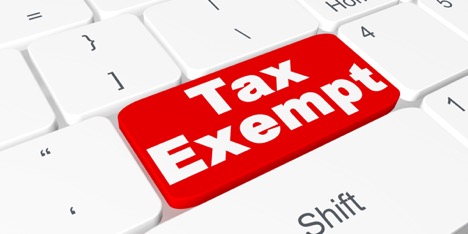Tax Exemption Scheme for New Start-Up Companies 新成立公司免税计划
The tax exemption scheme for new start-up companies was introduced in Year of Assessment (YA) 2005 to support entrepreneurship and help our local enterprises grow. 为支持创业精神,帮助本地企业成长,新开办公司免税计划于2005年推行。
As other support for companies to build capabilities is being strengthened, it was announced in Budget 2018 that the tax exemption under the scheme will be revised. The changes will take effect from YA 2020 for all qualifying companies that claim the tax exemption under the scheme. 随着对企业能力建设的其它支持力度不断加强,2018年预算中宣布,将修订该计划下的免税额。这些修改将从2020年起对所有申请该计划免税的符合条件的公司生效。
With the changes, qualifying companies will be given the following tax exemption for the first three consecutive YAs where the YA falls in: 随着这些变化,符合条件的公司将获得以下免税待遇,适用于符合条件的公司所属的前三个连续评税年度:
YA 2020 onwards 评税年度2020以后
- 75% exemption on the first $100,000 of normal chargeable income*; and 对正常应课税收入的前10万新元给予75%的豁免*;以及
- A further 50% exemption on the next $100,000 of normal chargeable income*. 下一笔10万新元的正常应课税收入可再获50%的免税*。
YA 2019 and before 评税年度2019及之前
- Full exemption on the first $100,000 of normal chargeable income*; and 对正常应课税收入的前10万新元全额免税*;以及
- A further 50% exemption on the next $200,000 of normal chargeable income*. 对下一笔20万新元的正常应课税收入再免除50%。
*Normal chargeable income refers to income to be taxed at the prevailing corporate tax rate. 正常应纳税所得额是指按现行企业税率纳税的所得额。
The tables below summarise the amount of tax exemption. 下表总结了免税额。
Tax Exemption on First $200,000 of Chargeable Income (where any YA of the first 3 YAs falls in or after YA 2020) 应课税收入首20万新元的免税额(首3个评税年度中的任何YA 2020年或之后)
| Chargeable Income 应纳税所得额 | % Exempted from Tax 免税率 | Amount Exempted from Tax 免税额 |
| First $100,000 前 | 75% | $75,000 |
| Next $100,000 接下来 | 50% | $50,000 |
The maximum exemption for each YA is $125,000 ($75,000 + $50,000). 每评税年度最高免税额为125000新元(75000新元+50000新元)。
Tax Exemption on First $300,000 of Chargeable Income (where any YA of the first 3 YAs falls in YA 2010 to YA 2019) 应课税收入首$30万的免税额(首3个评税年度中的任何YA 在YA2010年至YA2019年)
| Chargeable Income 应纳税所得额 | % Exempted from Tax 免税率 | Amount Exempted from Tax 免税额 |
| First $100,000前 | 100% | $100,000 |
| Next $200,000接下来 | 50% | $100,000 |
The maximum exemption for each YA is $200,000 ($100,000 + $100,000). 每评税年度最高免税额为20万新元(10万新元+10万新元)。
Qualifying Conditions for Start-Up Companies 初创公司的资格条件
The tax exemption is open to all new companies except these two types of companies: 除以下两类公司外,所有新公司均可免税:
- A company whose principal activity is that of investment holding; and 主要业务为投资控股的公司;以及
- A company which undertakes property development for sale, for investment, or for both investment and sale. 从事房地产开发以供出售、投资或投资销售的公司。
To qualify for tax exemption for start-ups, eligible companies must satisfy these three qualifying conditions: 要获得初创企业免税资格,符合条件的公司必须满足以下三个条件:
- The company must be incorporated in Singapore; 公司必须在新加坡注册成立;
- The company must be a tax resident in Singapore for that YA; 公司必须是新加坡的税务居民;
- The company’s total share capital is beneficially held directly by no more than 20 shareholders throughout the basis period for that YA where: 公司的总股本在整个基期内由不超过20名股东直接实益持有,其中:
- all of the shareholders are individuals; or 所有股东均为个人;或
- at least one shareholder is an individual holding at least 10% of the issued ordinary shares of the company. 至少一名股东为持有公司已发行普通股10%以上股份的个人。
Determining the First YA of a Qualifying Company 确定符合条件的公司的第一个评税年度
The exemption is for the company’s first three consecutive YAs. The first YA is the YA relating to the basis period during which the company is incorporated. 该豁免是针对公司前三个连续的评税年度(YA)。第一个YA是与公司成立的基期相关的YA。
The first YA of a company depends on the financial year end chosen and the closing date of the first set of accounts. Hence, the first YA of a company may be different from another company that is incorporated on the same day. 公司的第一个评税年度取决于选择的财政年度末和第一套账目的结账日期。因此,一家公司的第一个YA可能与同一天成立的另一家公司不同。
Claiming Tax Exemption 申请免税
To claim tax exemption, complete the relevant sections of the Estimated Chargeable Income (ECI) form and income tax return. 要申请免税,请填写预计应课税收入(ECI)表格和所得税申报表的相关章节。
For more information on filing ECI and the income tax return, please refer to: 有关提交企业所得税申报表和所得税申报表的更多信息,请参阅:
- Filing Estimated Chargeable Income (ECI); and 申报预计应课税收入(ECI);以及
- Overview of Form C-S/ C 表C-S/C概述

